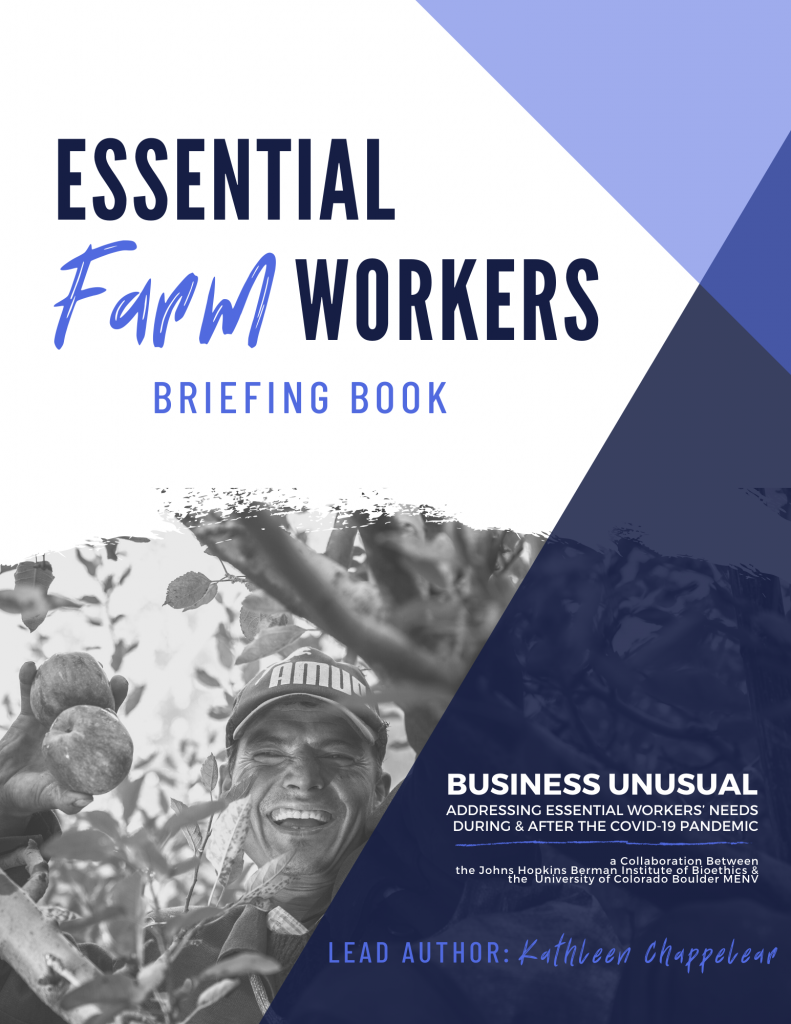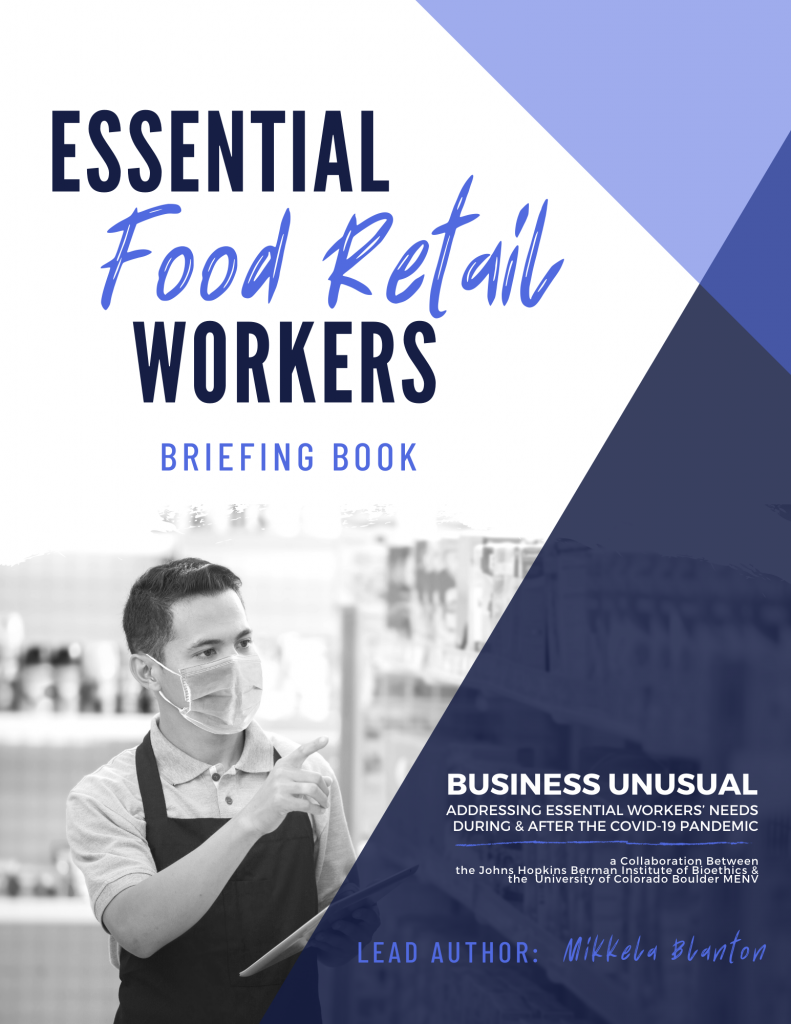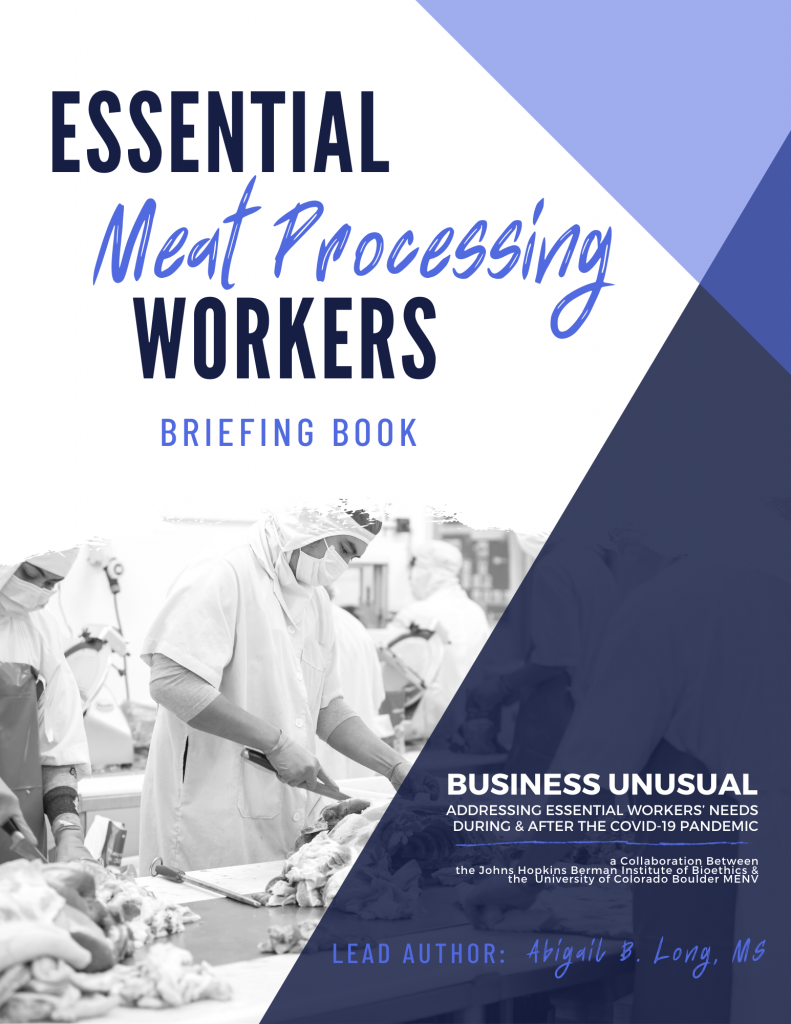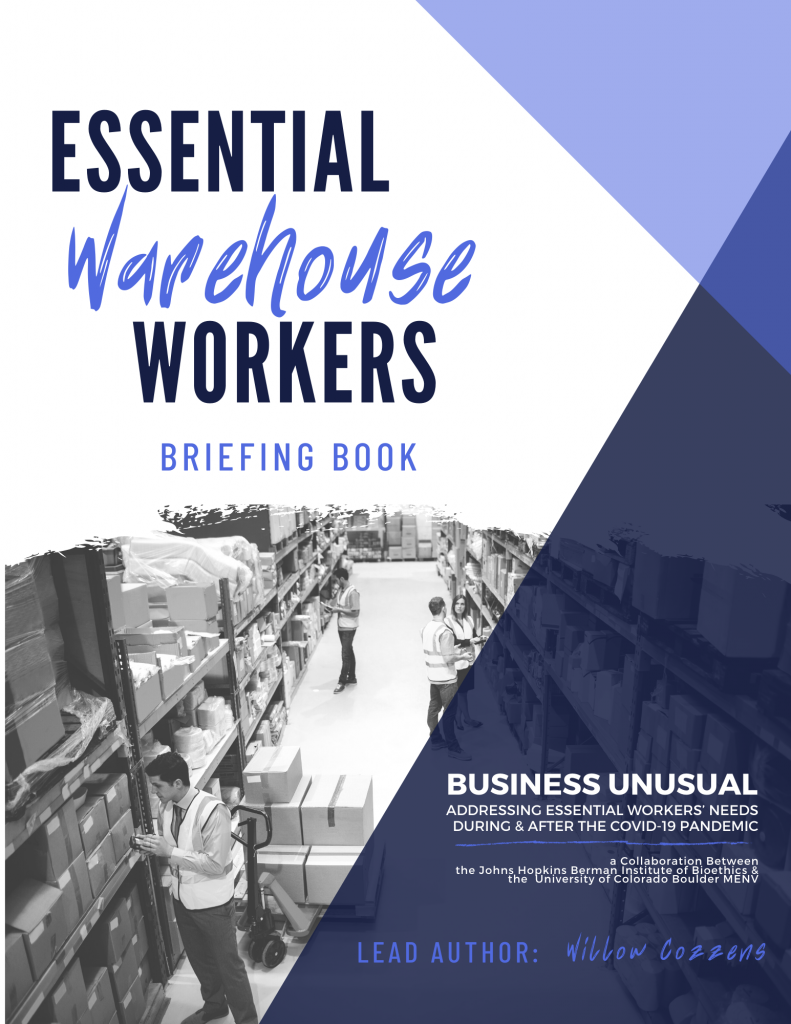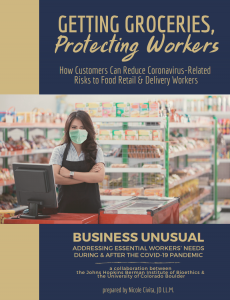Workers across the entire food system have long been underpaid and under-appreciated. But, as part of the pandemic response, many categories of food system workers were deemed “essential.” This designation exposes a cruel paradox: everyone relies on food system workers to meet their basic needs for sustenance in times of calm and crisis, but many food system workers do not have secure livelihoods and exist on the margins of society. With our collective dependence on food system workers laid bare, it is time to support these workers so that they can continue to labor for the common good and insure the security of the food supply. At the same time, we must also consider what we owe these workers and provide them with tangible support and enforceable rights.
Many of the jobs in the food system pay low wages, offer few benefits, and place workers in close proximity to each other or to the general public. Thus, many of these workers face common COVID-related risks. However, each worker’s ability to safely navigate these risks depends on factors that include:
- the nature of their particular job duties;
- the workplace policies, ethics, and accountability of their particular employer(s);
- their ability to participate in labor organizations and the strength of collective worker voice; and
- their level of social inclusion and the quality of their connections to the communities where they live and work;
- their legal status, authorization to work and ability to secure alternate employment; and
- their financial status and the number of other relying upon them for material support.
Because many food system workers were experiencing an array of intersecting vulnerabilities even before COVID-19 changed the nature of and risks associated with their work, they may be at greater risk for contracting the virus, experiencing its worst effects, spreading it to others (including co-workers), facing financial hardship, losing the ability to support themselves, and being pushed further to the margins of society.
To motivate and facilitate practically and ethically important worker-supportive action by public and private sector leaders, we have prepared briefing books that document the health risks and other vulnerabilities faced by essential food systems workers and their families during the COVID-19 pandemic. We also propose important measures to address these risks. While these briefing books were created in response to the coronavirus crisis, they also point to the need for longer-term changes to address the underlying inequities that leave food system workers — and, in turn, our entire food system vulnerable.
